Hunting camps can be a magical place where cares are few and the worries of the outside world are forgotten for at least a week. However, the euphoria of endless deer tails and days afield can transform an organized camp into a dump. Dishes have to be washed, gear organized, and meals cooked well for the enjoyment to continue. Personally, I love hunting camps, yet realize that they require work in order to function. Here are 10 tips to help make your next hunt more enjoyable:
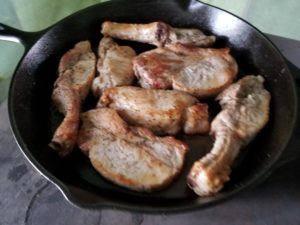
- Most important: Bring someone in your group who likes to cook or at least is proficient enough to prepare meals with taste and nutrition. Make sure that he or she gets the best deer stand or hunts with the best guide. You want this person to fill a tag early so that camp chores get done and meals are prepared.
- Pre-cook a bag of baking potatoes: In case tip No. 1 doesn’t happen, have plenty of backup plans. My good friend Jerry Vandiver set up a camp in central Colorado and had a host of cool ideas. The tastiest was the bag of pre-cooked baking potatoes. Our first night, we put several by the campfire, allowed them to warm, unwrapped, topped with butter and ate them like Twinkies. Boil them, put them on a stove… just heat and serve.
- Bring a pillow: This may sound insignificant, yet you won’t get a good night’s sleep if you lay on your old clothes. If you don’t have room in your gear bag, buy a pillow at the trailhead and leave it for others.
- Plan a menu: Part of the excitement of hunting from a deer or elk camp is preparation.
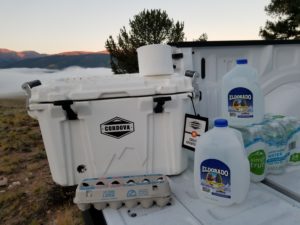
Plan a menu so that meal prep is easier. Include an extra roll of “mountain money.” Break each day into three parts and list a few key items. This helps in buying provisions and assures that you don’t have way too much or little. You will want peanut butter and jelly for sandwiches, yet include cheese and lunch meats, as well. If the weather turns bad or game evaporates, quality meals will help boost camp morale.
- Pre-plan breakfast: Bacon and eggs can get the day off to a great start, yet the tent or cabin will smell like bacon and so will you. If possible, cook bacon outside and bring the platter inside once it’s finished. Also, fill the coffee pot the night before and add the proper amount of coffee so that the first up can turn on the gas and have it ready in 10 minutes or so.
-
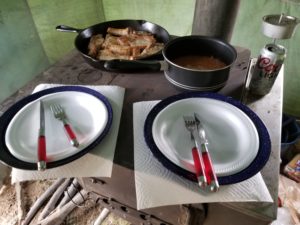
Consider having dinner for lunch. Eat the big meal in the middle of the day with a sandwich before bed. Eat dinner for lunch: Having a large meal at the end of the day is fine if someone is in camp to cook it. Returning to camp an hour after dark, cooking dinner, and then doing dishes isn’t fun. Depending on the type of hunt you are on, try having the large meal at noon and then sandwiches after dark.
- Carry a day pack. In elk country a backpack with cutting gear, meat bags, and survival gear is mandatory, yet a less aggressive pack can also carry your favorite snacks, a small thermos of hot chocolate, coffee, or tea, your game calls, and other gear that can fill your pockets. Deer hunting is often sedentary and having a few treats with you can help you stay still and on stand.
- Spike a base camp: Spike camps allow you to get away from other hunters and into the land of big bucks and bulls. I met a fellow elk hunter at BWI Airport and we discussed our hunting strategies. He purchased a large ALPS Outdoorz pack that contained his entire camp. “I hiked three miles from the nearest road, set up my spike camp, which became my base camp,” he said with great satisfaction. “Everything I needed is in that pack except my longbow.”
- Use solar lighting: Before leaving his home in Durango, Colorado, Jerry Vandiver
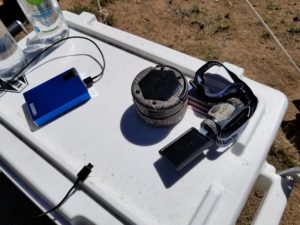
Solar devices can provide light and charge other devices. rounded up all of his solar lights including some that were motion activated. During our week in the wilds, only one mouse invaded our camp and the lighting was very helpful with midnight bathroom breaks. Most importantly, you don’t have to worry about batteries or turning the lights off. If a bear or mountain lion wondered by, the sudden burst of light would send it scampering.
- Finally, keep a journal of the hunt and the camp. Our elk gang has used the same menu for 10 years and we often refer back to our basic plan. Notes from the hunt will help you remember those funny things that can be forgotten as well as the “next year” list. Given a group of guys surviving in the wilds, a few things are bound to go awry, however, that doesn’t mean it needs to happen next year.

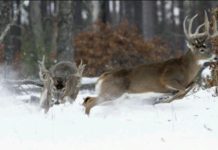
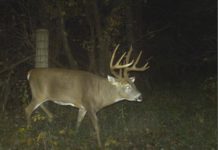
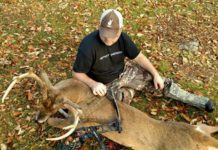
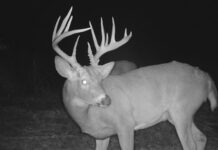


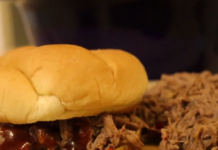

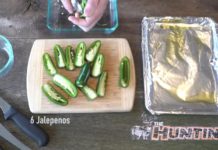

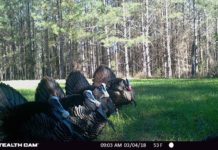
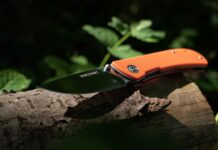
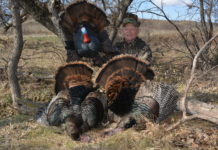

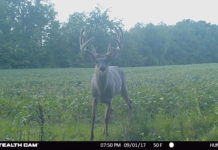
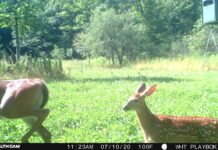
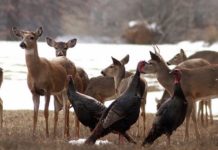

![The Best Deer Camp Chili [VIDEO] Deer Chili Ingredients, Tomatoes, Chili Spices](/wp-content/uploads/2015/10/Deer-Chili-Deer-Camp-Recipe-218x150.jpg)
![How to Call Elk Early in the Season [VIDEO]](/wp-content/uploads/2016/08/byers003-218x150.jpg)

![Jeff Wilson elkimagejpeg_0001[13855]](/wp-content/uploads/2018/09/Jeff-Wilson-elkimagejpeg_000113855-1.jpg)


![Idiots Disturb Hunter: How Would You Have Handled It? [VIDEO]](/wp-content/uploads/2015/10/DSC00110-e1474487693878-100x70.jpg)
![Albino Buck Shocked to Shed His Antlers [VIDEO]](/wp-content/uploads/2015/10/AlbinoDeer-100x70.jpg)